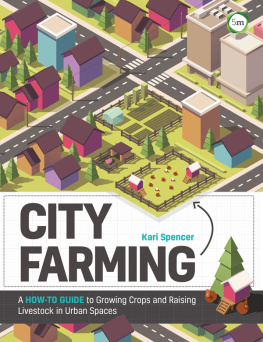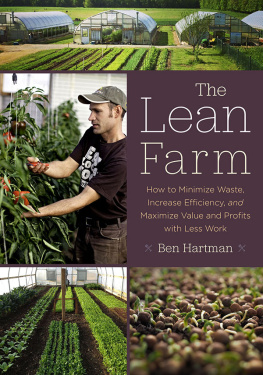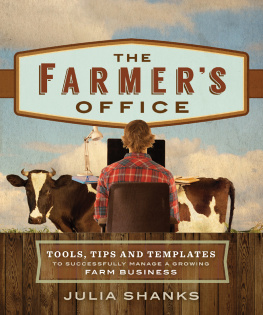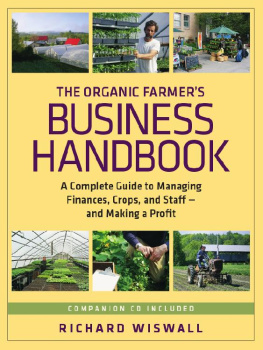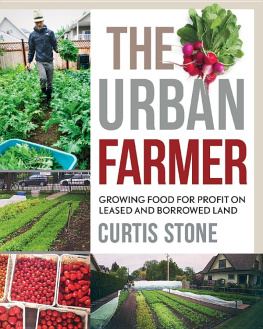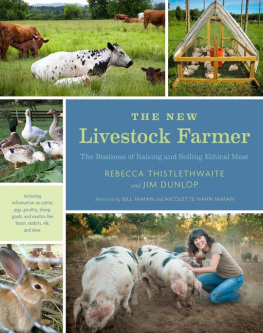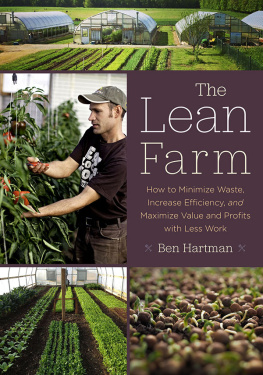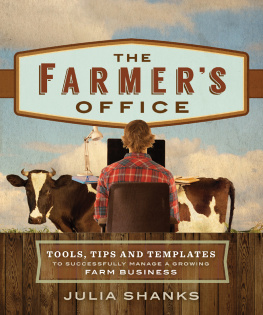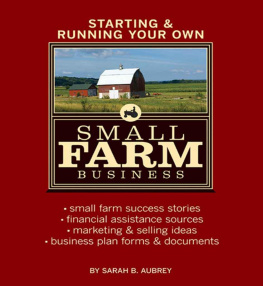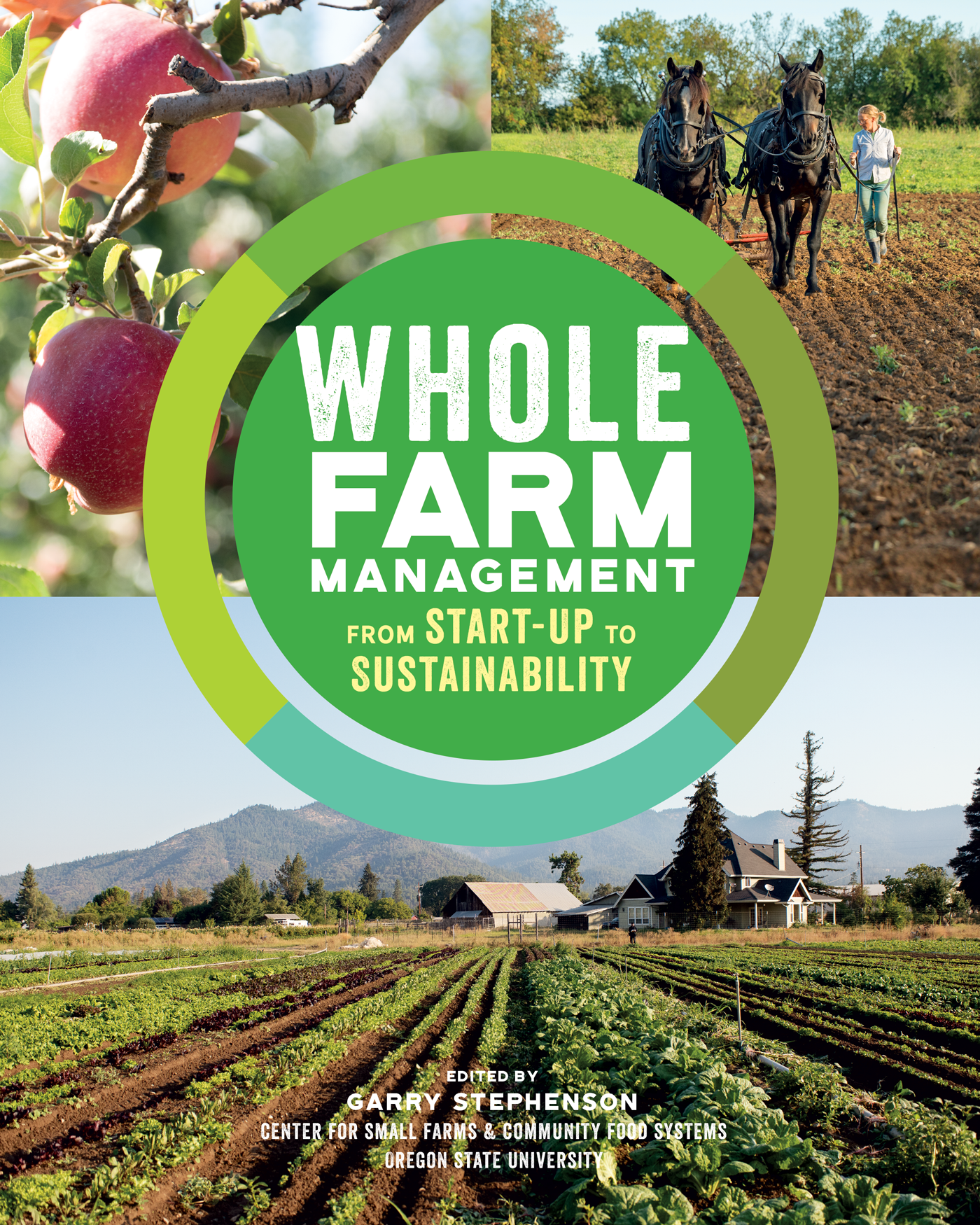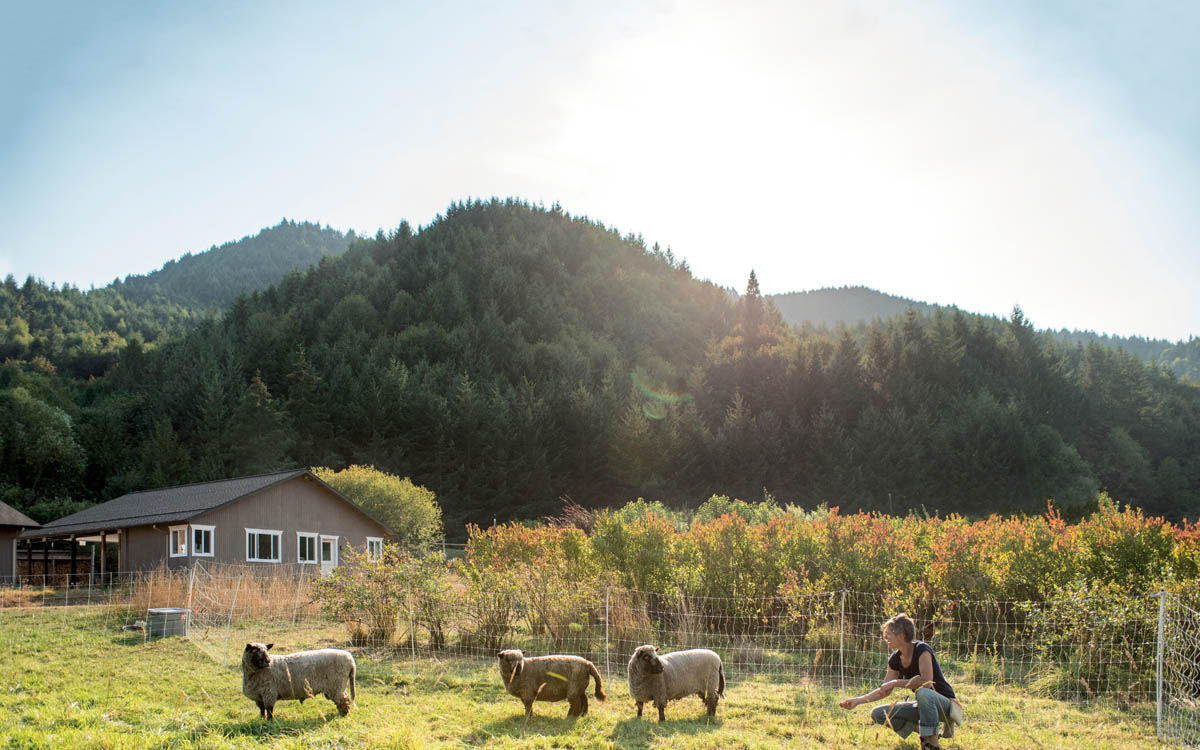The mission of Storey Publishing is to serve our customers by publishing practical information that encourages personal independence in harmony with the environment.
Edited by Deborah Burns, Sarah Guare, and David Chaney
Art direction by Carolyn Eckert
Book design by Carolyn Eckert and Erin Dawson
Indexed by Christine R. Lindemer, Boston Road Communications
COVER CREDITS
Cover photography by Lisa J. Godfrey, front (t.r); Shawn Linehan, front (t.l. & b.), back (l.), spine; Carmen Troesser, back (r.)
Interior photography by
Carmen Troesser,
Lisa J. Godfrey,
Lise Metzger, t.r.
Shawn Linehan,
Additional photography by
Brandi Larkin/stock.adobe.com, b.l.
courtesy of (top to bottom): USDA, Food Alliance, Humane Farm Animal Care, Salmon-Safe, The Non-GMO Project, Fair Trade Certified
Courtesy of Jen Keller, Pacific Crest Farm
Graphics by Ilona Sherratt, adapted from Oregon State University Professional and Continuing Education (PACE) Growing Farms: Successful Whole Farm Management:
Text 2019 by Garry Stephenson
Ebook production by Slavica A. Walzl
Ebook version 1.0
October 29, 2019
All rights reserved. No part of this book may be reproduced without written permission from the publisher, except by a reviewer who may quote brief passages or reproduce illustrations in a review with appropriate credits; nor may any part of this book be reproduced, stored in a retrieval system, or transmitted in any form or by any means electronic, mechanical, photocopying, recording, or other without written permission from the publisher.
The information in this book is true and complete to the best of our knowledge. All recommendations are made without guarantee on the part of the author or Storey Publishing. The author and publisher disclaim any liability in connection with the use of this information.
Storey books are available at special discounts when purchased in bulk for premiums and sales promotions as well as for fund-raising or educational use. Special editions or book excerpts can also be created to specification. For details, please call 800-827-8673, or send an email to .
Storey Publishing
210 MASS MoCA Way
North Adams, MA 01247
storey.com
Library of Congress Cataloging-in-Publication Data
Names: Stephenson, Garry Owen, editor.
Title: Whole farm management : from start-up to sustainability / edited by Garry Stephenson ; contributing authors: Nick Andrews, David Chaney, Melissa Fery, Amy Garrett, Lauren Gwin, Melissa Matthewson, Tanya Murray, Heidi Noordijk, Sherri Noxel, Maud Powell, Garry Stephenson, and Josh Volk.
Description: North Adams [Massachusetts] : Storey Publishing, 2019. | Includes bibliographical references and index. | Summary: Whole Farm Management is a comprehensive guide developed by the Small Farms Program at Oregon State University to help aspiring and beginner farmers make smart, strategic business decisions to ensure lasting success Provided by publisher.
Identifiers: LCCN 2019025786 (print) | LCCN 2019025787 (ebook) | ISBN 9781635860740 (paperback) | ISBN 9781635860764 (hardcover) | ISBN 9781635860757 (ebook)
Subjects: LCSH: New agricultural enterprises. | Farm management. | Farms, Small.
Classification: LCC S565.86 .W46 2019 (print) | LCC S565.86 (ebook) | DDC 630.68dc23
LC record available at https://lccn.loc.gov/2019025786
LC ebook record available at https://lccn.loc.gov/2019025787
Acknowledgments
It is important to acknowledge those who have financially and enthusiastically supported our work over the years, allowing us to develop and teach the curriculum that is published here. Oregon Tilth, Inc., through its partnership with the Center for Small Farms & Community Food Systems, has supported our work with beginning farmers, including the development of the course Growing Farms, since 2009. The USDAs National Institute of Food and Agriculture (NIFA) Beginning Farmer and Rancher Development Program has provided grant support to advance our work in beginning farmer education.
All royalties from this book will support the Oregon State University Center for Small Farms & Community Food Systems and its work in sustainable agriculture and community food systems.
Contents
Strategic Planning
Farm Infrastructure, Labor, and Energy
Markets and Marketing
Business Management for the Farm
Managing the Whole Farm Ecosystem
Entrepreneurship, Family Business Dynamics, and Managing Risk
Introduction Growing a Farm

Urban Buds
Many people dream of starting a farm. If you ask them Why a farm? you will get a wide variety of responses. And if you ask What kind of farm? the answers will cover a range of possibilities. Some people describe their dream farm in great detail, and others describe it in broad strokes. This is hardly surprising: there are probably as many types of farms and farm businesses as there are unique personalities.
Yet across these diverse dreams and possibilities, there are basic principles that apply in every situation. Operating a farm business requires managing dreams, crops, people, markets, money, and reality.
How to manage all six of those individually, then together is the subject of this book. In the following chapters, we lead aspiring and beginning farmers through the basics of how to start and manage a successful farm business. In the process, we blend advice and inspiration from experienced farmers with guidance from agricultural educators. The farmers we work with, like those who are the focus of this book, operate small to medium-sized farms that use sustainable and organic methods, and they sell their products through local and regional markets.
What do we mean by aspiring and beginning farmers? This book is intended for people who are thinking of starting a farm business (particularly a small farm), those within their first decade of farming, and others who are not beginners but are considering major changes to their farm business. If you do not fit into any of these categories, this book is still a rich resource, with information you can adapt to any farming situation. If you are not planning to have your own farm and would rather be a farm manager for someone else, this book is also for you.
Where you are in this whole process will determine how you use this book. If you are not farming yet and are in the early stages of imagining your farm, it will be useful to go through the chapters in order. At the other end of the spectrum, if you are an experienced farmer, you might start with the table of contents, scanning for information relevant to your particular situation and the questions you have. One thing we have learned from farmers over the years is that their readiness for absorbing different types of information depends on what stage of farm business development they are in. (More on that later.)


